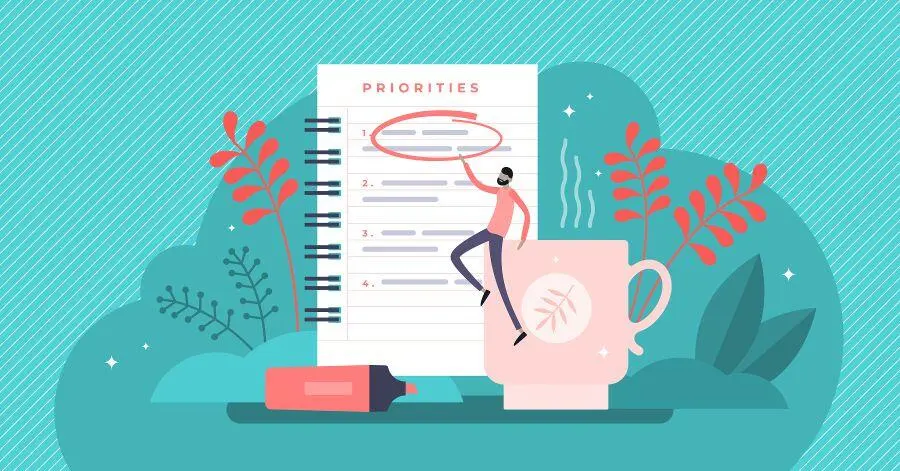
Time is one of the most valuable resources we have, yet many of us struggle to use it effectively. Between work, family, and personal commitments, it can feel like there’s never enough time in a day. However, managing your time well isn’t about cramming more tasks into your schedule—it’s about working smarter, not harder. Effective time management helps you reduce stress, increase productivity, and make more room for what truly matters. Here are some proven techniques that actually work and can help you take control of your time.
1. Start with Clear Priorities

Before you can manage your time, you need to know what’s most important. Start by identifying your key priorities for the day, week, or month. One of the most effective tools for this is the Eisenhower Matrix, which divides tasks into four categories:
- Urgent and important: Do these immediately.
- Important but not urgent: Schedule these for later.
- Urgent but not important: Delegate them if possible.
- Neither urgent nor important: Eliminate or ignore them.
This method helps you focus on what truly matters instead of wasting energy on distractions or low-value activities.
2. Plan Your Day the Night Before
Spending just 10 minutes each night planning your next day can make a huge difference. Write down the top 3–5 tasks you want to accomplish and estimate how long each will take. When you wake up, you’ll already have a clear roadmap for the day. This reduces morning stress and allows you to start strong without wasting time deciding what to do first.
3. Use the Pomodoro Technique
The Pomodoro Technique is a simple but powerful time management method that helps maintain focus and prevent burnout. Here’s how it works:
- Choose a task to work on.
- Set a timer for 25 minutes (this is one “Pomodoro”).
- Work without interruption until the timer rings.
- Take a 5-minute break.
- After four Pomodoros, take a longer break (15–30 minutes).
This approach keeps your mind fresh, helps you avoid distractions, and boosts productivity by breaking large tasks into manageable chunks.
4. Set SMART Goals

Vague goals often lead to wasted time and frustration. Instead, set SMART goals—Specific, Measurable, Achievable, Relevant, and Time-bound. For example, instead of saying “I’ll work on my project,” say “I’ll complete the first section of my project by 3 p.m.” SMART goals give your day direction and help you measure progress more effectively.
5. Batch Similar Tasks Together
Switching between different types of work—like writing emails, making calls, and doing creative tasks—can drain mental energy and reduce focus. To avoid this, batch similar tasks together. For example, answer all your emails at once, schedule all meetings in one block, and reserve specific hours for deep work. Task batching minimizes context-switching and helps you stay in the right mindset for longer periods.
6. Learn to Say No
Many people struggle with time management because they take on too much. It’s okay to say no when your schedule is already full or when a request doesn’t align with your goals. Politely declining allows you to protect your time and focus on what truly matters. Remember: every “yes” to something unimportant is a “no” to something meaningful.
7. Eliminate Distractions
Even small distractions can break your concentration and waste valuable time. Silence unnecessary notifications, close unused tabs, and set boundaries with people around you. If your phone is a major source of distraction, consider using apps like Forest or Focus@Will to help you stay on track. Creating a distraction-free environment can double your productivity.
8. Use Time Blocking

Time blocking means dividing your day into specific blocks of time dedicated to particular tasks or activities. For instance, you might reserve 9 a.m.–11 a.m. for focused work, 11 a.m.–12 p.m. for emails, and 2 p.m.–3 p.m. for meetings. By assigning each block a purpose, you make it easier to stick to your plan and avoid procrastination.
9. Review and Reflect Weekly
At the end of each week, take time to review what you accomplished and where you fell short. Ask yourself:
- What worked well this week?
- What distracted me or wasted my time?
- What can I do differently next week?
This habit of reflection helps you continuously refine your time management strategies and become more efficient over time.
10. Prioritize Rest and Self-Care
Ironically, one of the best time management techniques is taking breaks. Rest, exercise, and sleep improve focus, creativity, and decision-making. Working non-stop may seem productive, but burnout slows you down in the long run. Schedule downtime just as you would any other important task—it’s an investment in your productivity and well-being.
Final Thoughts
Effective time management isn’t about doing more—it’s about doing what matters most, more efficiently. By setting clear priorities, planning ahead, staying focused, and giving yourself room to rest, you can take control of your schedule and feel more accomplished each day. Remember, time management is a skill that improves with practice. Start with one or two techniques from this list, and gradually build habits that help you make the most of your time—and your life.

